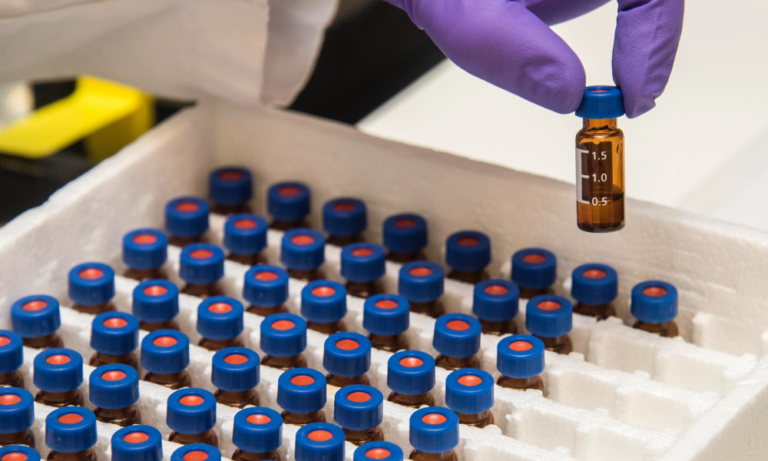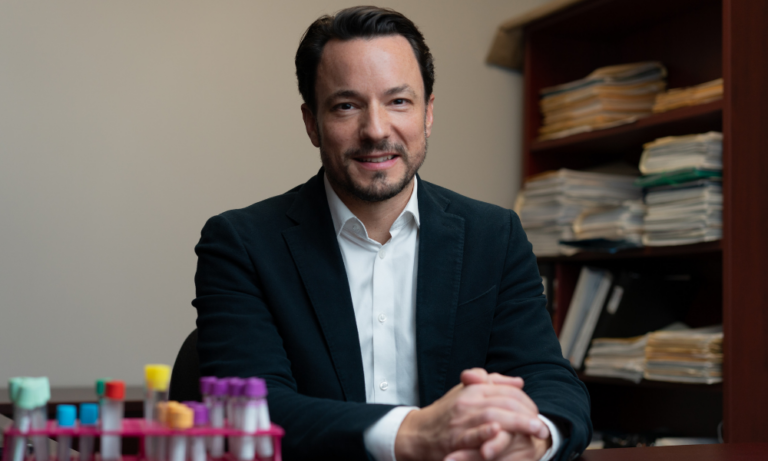
This article is adapted from the second edition of the Foundation’s magazine
What will the Institute’s researchers be working on in the coming years? David Rhainds, Deputy Director of the Montreal Heart Institute’s Research Centre, shares an overview of upcoming projects.
The Research Centre houses 380 employees, including 88 researchers, who focus on three areas of research: blood vessels, electrophysiology (the heart’s electrical system), and myocardial function (the heart muscle). Including postdoctoral interns and students, more than 600 people are currently working to better understand cardiovascular diseases and how to mitigate their effects.
Following a long tradition of innovation, researchers at the MHI explore promising avenues – including precision medicine and ground-breaking clinical studies – and implement long-term flagship projects.
Predicting risks with polygenic scores
“A polygenic score is basically a number that represents the variants in a person’s genome,” said David Rhainds. This score is used to identify a person’s given risk of any number of conditions including baldness, breast cancer, heart attacks, or even strokes. Future research projects will aim to expand, validate, and rely on polygenic scores to predict the risk of developing some cardiovascular diseases and discover hundreds of as-yet unknown markers.
Optimizing virtual studies
Several virtual studies, such as the COLCORONA study, have already been carried out. In the upcoming COLCOT-T2D study, which aims to demonstrate that colchicine could prevent cardiovascular events in individuals suffering from the type 2 diabetes, patients can register, get information about the study, and even sign consent forms online. “Virtual clinical studies are here to stay,” said David Rhainds. That’s why it’s so important to build the infrastructures and services these studies require. For instance, in the future, medication required by the study could be delivered directly to a patient’s home. Furthermore, a nurse could visit the patient when a sample is required, or they could collect their own saliva using a collection kit. Sensors could even be used to collect data about the patient in real time. “This would enable us to widen our pool of participants. There are also myriad benefits for the patient as well. It will be easier for them to take part in studies with the use of modern communication tools,” added David Rhainds.
Implementing a research program focused on the heart and brain
One of the Institute’s flagship projects is an exhaustive, structured program that aims to understand the effects of cardiovascular diseases and their impact on cognitive decline and dementia. This program will focus on several aspects of the relationship between the heart and brain to validate new mechanisms. “We really want to undertake every aspect of our research on the heart-brain relationship with a group of researchers across Canada,” said David Rhainds. With our ongoing BRAIN-AF study, we are assessing the impact of an anticoagulant used to prevent blood clots on cognitive decline in adults with a heart rhythm disorder. In the long run, we want to reduce cardiovascular diseases and strokes and mitigate their impact.
Are you sensitive to the needs of patients and want to support research?
donate today









